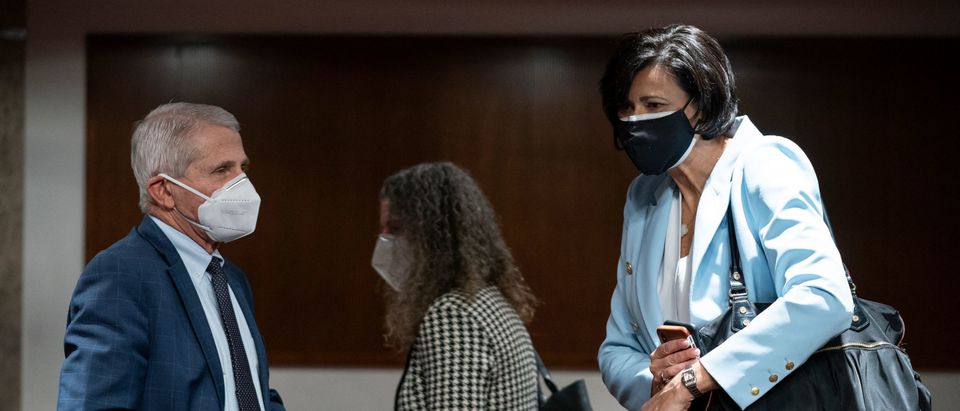The Centers for Disease Control and Prevention (CDC) suggested in a new report that long-term COVID-19 restrictions may be necessary due to the threat of “long COVID.”
In a new Morbidity and Mortality Weekly Report (MMWR) published this week, the agency concluded that as many as one in five Americans could be at risk of developing a form of “long COVID,” meaning there is some lingering illness or condition still present after recovering from the coronavirus. According to the report, this means mitigation efforts against the virus may continue to be necessary.
“Implementation of COVID-19 prevention strategies, as well as routine assessment for post-COVID conditions among persons who survive COVID-19, is critical to reducing the incidence and impact of post-COVID conditions, particularly among adults aged ≥65 years,” the report says in response to the question “What are the implications for public health practice?”
So far in the pandemic, those prevention strategies have included policies like mask and vaccine mandates, although the MMWR does not specify what measures should be implemented to combat the prevalence of long COVID.
The MMWR was touted by many corporate media outlets as further evidence of the threat of long COVID, but some scientists offered points of skepticism. Dr. Vinay Prasad criticized the paper for not controlling for increased diagnostic labeling bias, or for the fact that sicker people will seek treatment for COVID-19 more often. Dr. Adam Cifu tweeted that, based on his own experience with COVID-19 patients, the CDC’s estimate “does not pass the sniff test.”
No time to get into a real critical appraisal of this article today but, as a PCP with 100+ post COVID people (overwhelmingly vaccinated), this does not pass the sniff test.
Post–COVID-19 Conditions Among Adult… https://t.co/yXjGbhiFvK via @CDCgov— Adam Cifu (@adamcifu) May 25, 2022
I would be embarrassed to publish this paper which does not adjust for increased diagnostic labeling/ ascertainment bias
But it is more embarrassing for the federal government to tweet a silly infographic. https://t.co/vNye4sz7KQ
— Vinay Prasad, MD MPH 🎙️📷 (@VPrasadMDMPH) May 24, 2022
The CDC lists 26 different conditions in the study which a person may be more likely to develop after recovering from COVID-19. The conditions with the biggest increase in risk post-COVID were acute pulmonary embolism and respiratory symptoms. For those aged 65 and older, renal failure and thromboembolic events had relatively higher risk as well. Younger patients reported higher rates of smell and taste problems. (RELATED: Not Just China: The US Government, Universities Are Hiding Evidence On The Origin Of COVID-19, Experts Allege)
The NIH released a conflicting study this week, which found no tangible post-COVID immune problems which could be linked to the virus. It concluded that women and individuals with history of anxiety disorder were more likely to report long COVID symptoms, which lends some credence to health professionals who have theorized that long COVID may be a psychosomatic disorder in some patients.


